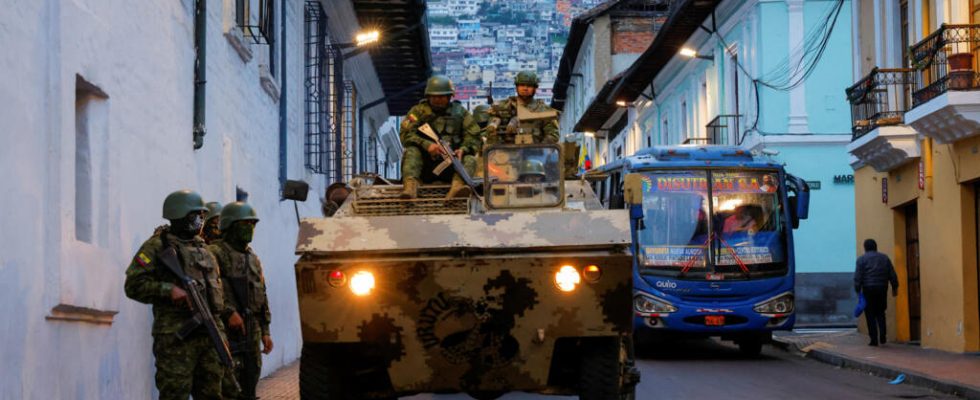For years, Ecuadorian prisons have been under the control of armed gangs who regularly carry out massacres between rival gangs. These prisons are veritable schools of crime because new inmates must integrate into these criminal structures to survive.
2 mins
With our correspondent in Quito, ERick Samson
Between the patios transformed into a swimming pool in the prison of You laugh or the birthday parties with fireworks of the leader of Choneros Adolfo Macias who escaped on Sunday January 7, the gangs ran rain and shine in the prisons of Ecuador whose guards and authorities were bribed or threatened. A situation that President Daniel Noboa intends to change.
“ Super maximum »
When he presented the plans for the two new maximum security prisons whose construction will begin in rural areas of the provinces of Pastaza and Santa Elena, Daniel Noboa did not speak of social rehabilitation centers but of deprivation centers. freedom. A nuance which is not only semantic for future detainees: “ These prisons will have “super maximum”, “maximum” and high security pavilions, with blocking of cell phone and satellite phone signals, reinforced access controls, three surrounding walls, armored constructions and anonymous guards with faces. Covered “.
In addition to three floating prisons which should arrive in seven or eight months, these new centers will be built by the same company which built President Bukele’s mega prison of more than 40,000 places in El Salvador. In Ecuador, the centers will be much smaller with 224 cells for 736 prisoners each, suggesting that these two prisons will be reserved for the most dangerous prisoners. “ This is the start of an urgent operation to clean up the penitentiary system which has been dominated for years by the mafias. The violent reactions of criminals in prisons and the streets show their fear of the security measures we are putting in place on the territory », declared Daniel Noboa.
Expulsion of thousands of foreign prisoners
The Ecuadorian president also intends to fight against prison overpopulation by expelling thousands of foreign prisoners, including 1,500 Colombians, even if it means abandoning them at the border. The response from Bogota was mixed. The Colombian government has said it is ready to examine extradition requests as quickly as possible, but on a case-by-case basis and not on a massive scale.
Read alsoEcuador in a state of “internal war”
